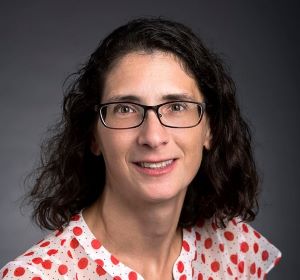
A George Mason University project to add quantum physics to the curriculum of several local school systems is part of the recently approved federal budget.
The K12 Quantum Workforce Development Project, which is being run by Mason’s Quantum Science and Engineering Center, accounted for $650,000 of the $3.5 trillion House Appropriations Bill and will serve as the pilot for a quantum physics curriculum in public schools in Fairfax and Loudoun counties. The aim of the program is to inspire the next generation of students to pursue the field while simultaneously preparing a diverse quantum workforce in Northern Virginia.
“The funding for this important initiative will have multiple impacts, to better prepare our teachers for a quantum future, to expand the knowledge of our diverse STEM workforce pipeline, and to further our important research at Mason’s Quantum Science and Engineering Center,” said Fernando Miralles-Wilhelm, dean of the College of Science. The center, founded in 2018, combines the efforts of physicists, mathematicians, computer scientists, and engineers to find new ways to use and advance quantum mechanics.
The federal funding will provide internships and career-connected experiences for secondary students seeking experience in quantum, support experiential learning and professional development for teachers, and begin the development of some of the first high school quantum curricula for Fairfax and Loudoun County Public Schools, said Jessica L. Rosenberg, an associate professor in the Department of Physics and Astronomy within the College of Science and the director of education for the Quantum Science and Engineering Center.
Mason officials made sure to credit U.S. Congresswoman Jennifer Wexton and her staff for their efforts in landing the community project. Wexton's 10th District includes all of Loudoun County and parts of Fairfax and Prince William counties.
Quantum physics is the study of the behavior of matter at the smallest scales and dates back to an early 20th-century understanding of the need for quantum physics to explain the behaviors of atoms and their constituents, Rosenberg said.
The first quantum revolution made use of quantum behaviors in technology like the transistors that are at the heart of today’s computers.
“We are now entering the ‘second quantum revolution’ in which we not only have the ability to exploit quantum behaviors, but to manipulate them to meet needs that will be critical for advancements in computing, sensor development and communications,” Rosenberg said.
Success in these areas, she said, requires a new generation of interdisciplinary researchers who approach quantum with an open mind and find new ways to apply these new technologies to a wide range of problems.
Advances that allow for the manipulation of quantum systems are central to the development of quantum computing, cryptography, materials, and sensing, and are poised to drive high-tech economic development. Investing now in the quantum workforce at the high school level will be critical for Northern Virginia as it seeks to lead in this area and compete with significant investments made in other regional centers, including Maryland, Rosenberg said.
News of the project comes as the first elements of quantum computers have begun to appear, with the expectation that they will be the norm within the next few years and impact society in much the same manner as the advent of the computer did roughly 40 years ago.
Preparing a diverse workforce ready for this new technology will be imperative.
“I think it’s going to be amazing,” Rosenberg said. “Quantum sounds a little bit scary. We want to make it not so scary.”
Working with the university’s College of Education and Human Development and corporate partners, Mason quantum scientists hope to do just that by embedding basic quantum understanding in school curriculum and making internships available to those high school students to better foster workforce development.
“Industry has gotten very interested in how we are going to get a workforce that understands this totally new sort of approach to computing,” Rosenberg said.
The MITRE Corporation, a Northern Virginia-based nonprofit organization looking to bring innovative ideas into existence for a safer world, is among the corporate partners collaborating with Mason on the project by providing critical internships.
